Meet the lab!
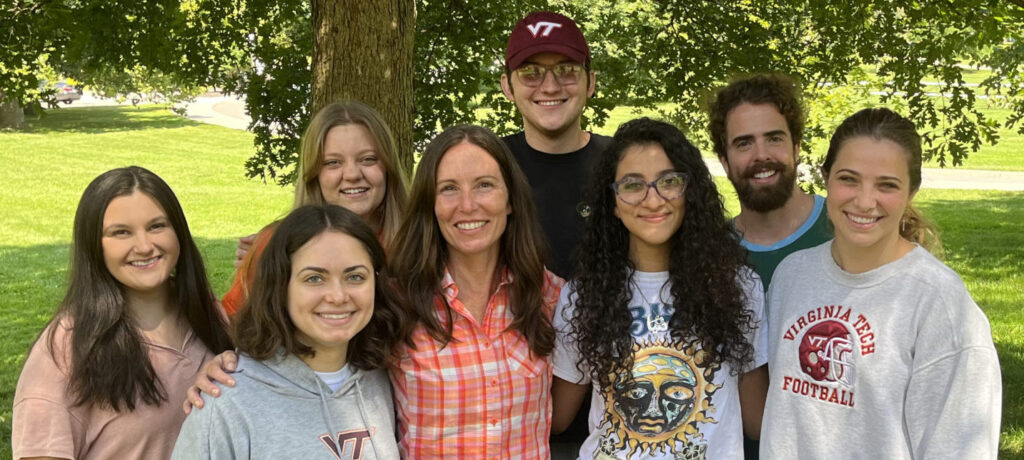
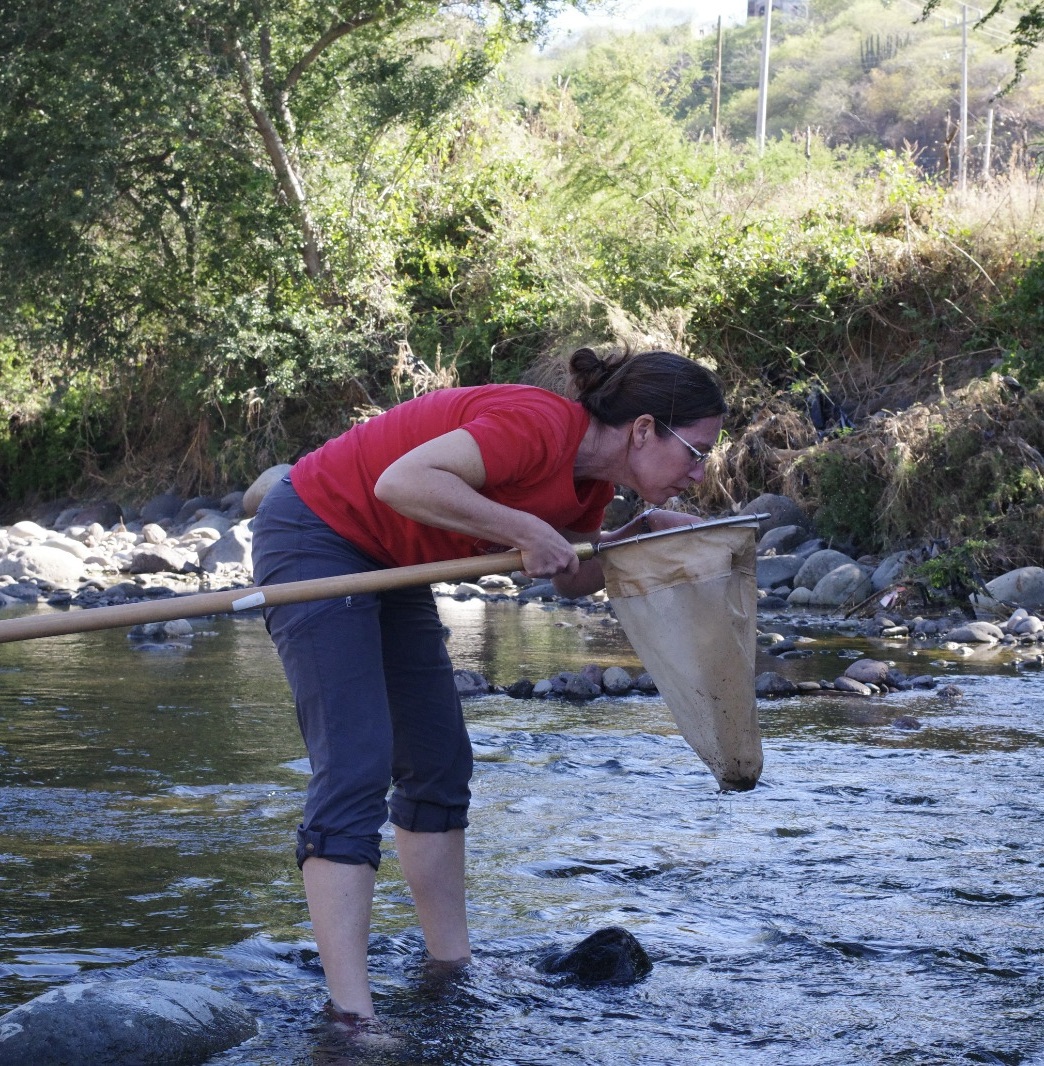
Sally Entrekin
Sally is an Associate Professor in the Entomology Department at Virginia Tech. She served as the Secretary for the society of Freshwater Science for 6 years and is the co-associate editor for the journal of Freshwater Science, Bridges, aimed at comparing and contrasting different topics across the aquatic sciences. At Virginia Tech, she teaches Aquatic Entomology and Freshwater Biomonitoring. Sally received her B.S. in Biology at Georgia Southwestern State University, an M.S. in Entomology at the University of Georgia and the Jones Ecological Research Center, and a Ph.D. in Biology at the University of Notre Dame.
The lab group she heads, the Virginia Tech Aquatic Entomology Lab, publishes on macroinvertebrate-environmental interactions, freshwater quantity and quality, and ecosystem ecology. The research group focuses on macroinvertebrate community ecology and ecosystem function, and the lab members use macroinvertebrate communities and ecosystem dynamics at the land-water interface to understand how people impact these elements of freshwater. The lab’s current projects span across disciplines that engage students and the public in water quality and quantity issues caused by the development of urban centers, agriculture, and resource extraction in streams and wetlands.
Current Graduate Students
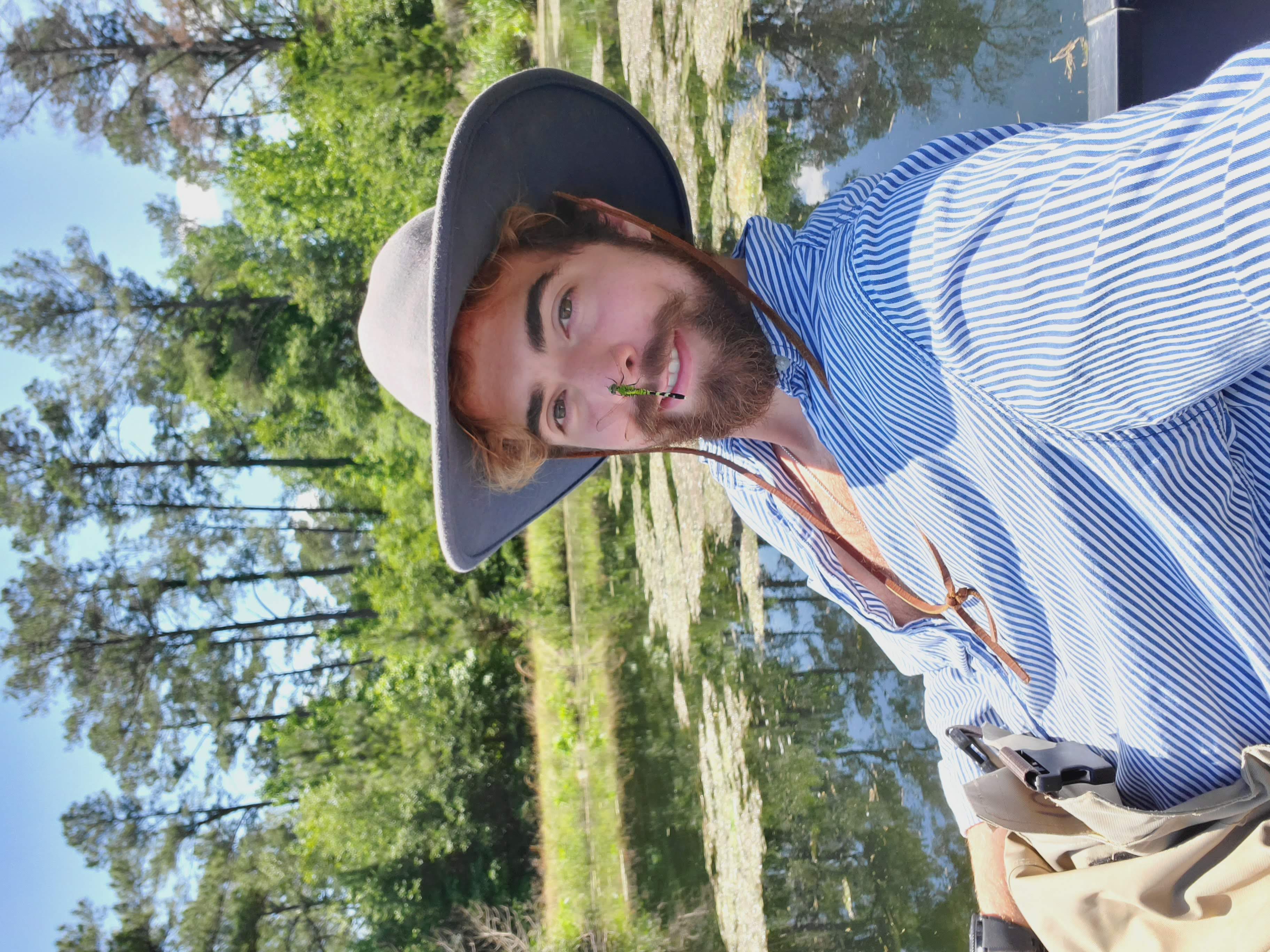
Sergio Sabat-Bonilla
Fall 2021
Sergio’s interests include macroinvertebrate ecology and their ecological responses to environmental stressors. Sergio worked on a wide range of ecological studies in relation to stressor-related responses during his bachelor’s degree in Biology from the University of Central Oklahoma. Sergio looked at the effects of urbanization on Barred Owls (Strix varia) and the impacts of the invasive Chinese Privet (Ligustrum sinense) within a new growth forest in central Oklahoma. He also researched the effects of urbanization on invertebrate community structure within Bromeliads (Guzmania) in Bosque Escuela la Olimpia and the surrounding community in Adjuntas, Puerto Rico. After obtaining his degree, Sergio did research on the ecological impact of invasive earthworms on ant-mediated seed dispersal within the forest understory and how this is shaped by the land-use history in northeastern Ohio. Furthermore, Sergio received his master’s degree in Biology from Georgia Southern University where he studied the community responses of aquatic macroinvertebrates to hydrological variations within experimental wetlands in the coastal plain of Georgia. His current research will examine the insect community functional response to best management practices in the Chesapeake Bay watershed. This work will provide a guideline as to predict the efficacy current best management practices have on freshwater stream ecosystems.
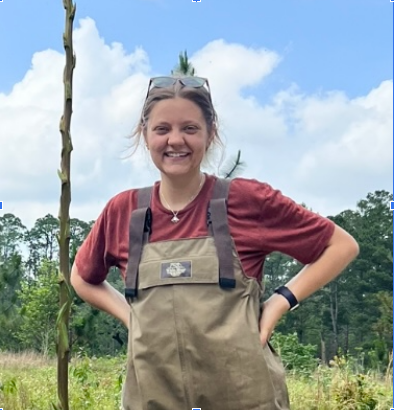
Elizabeth Sicking
Spring 2023
Elizabeth’s research is focused on the influences of hydrology and vegetation on emergent insect and benthic macroinvertebrate communities across geographically isolated wetlands in southwestern GA. She graduated from Virginia Tech with a BS in Biology and a minor in Entomology in December 2022. During her time as an undergraduate, Elizabeth researched the distribution and ecology of native prickly pear cacti and worked in Dr. Entrekin’s lab as a technician. Her interests include community ecology, the dispersal of emergent insects, and the impacts of anthropogenic change on intermittent freshwater ecosystems.
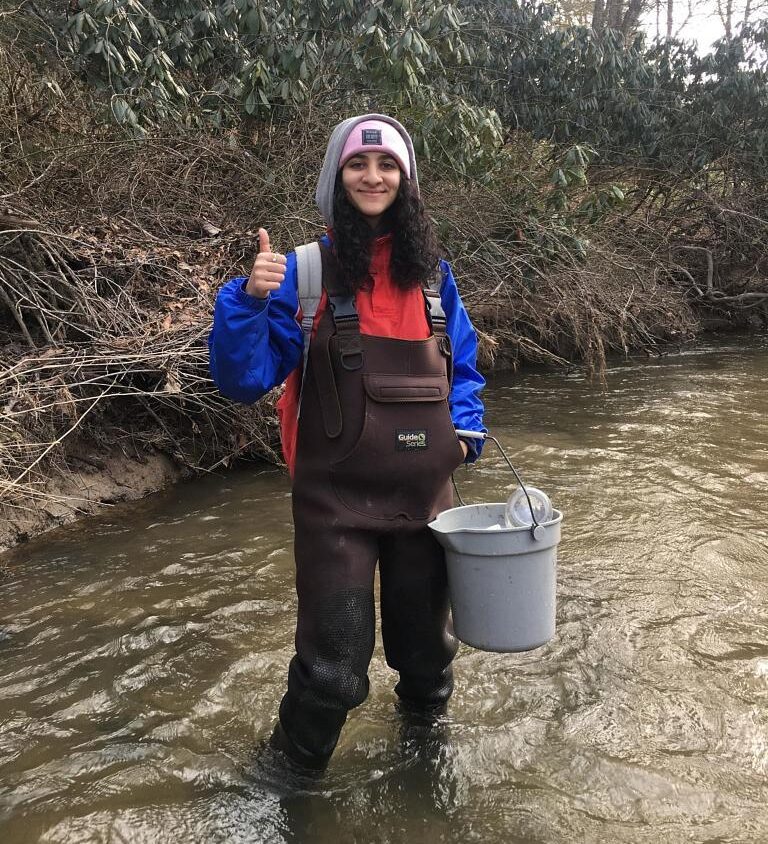
Donya Mohamed
Fall 2023
Donya’s research interests include anthropogenic stressors to aquatic systems, aquatic conservation and restoration, water quality, and freshwater ecology. She graduated from Radford University with a Bachelor’s in Environmental Biology in 2021. During undergrad she studied the effects of the Mountain Valley Pipeline on headwater streams in Roanoke County, VA, which provided a deeper understanding of how anthropogenic activities can disrupt an entire ecosystem. Upon graduation, Donya split her time as a lab tech between Dr. Entrekin’s aquatic entomology lab and Dr. Jess Jones in the Freshwater Mussel Conservation Center at Virginia Tech. Her graduate research focuses on how mussel reintroduction to streams can positively influence the effects of urbanization, as well as the interaction between mussels and the macroinvertebrate community composition in urban streams of Reston, VA. She is pursuing this project with the hopes of being able to link freshwater science research, management, and policy locally and internationally in the future.

Kelley Sinning
Fall 2023
Kelley’s professional interests span broadly across freshwater ecology and management and science communication. She graduated from Colorado State University in May 2023 with a B.S. in Fish, Wildlife, and Conservation Biology. In Colorado she worked for Dr. Yoichiro Kanno’s Stream Fish Ecology and Conservation lab while assisting multiple graduate student research projects. these projects covered topics of native fish conservation in salinized streams and fish diet analysis in nutrient deprived waters on private land. Her honors thesis was advised by Dr. LeRoy Poff and Dr. Dan Preston and analyzed longitudinal changes in aquatic invertebrates through fire-distributed abandoned beaver dams. Of these different experiences she most enjoyed conducting toxicology experiments and processing aquatic insect samples, which led to a natural interest in her current project with Dr. Entrekin studying secondary production of macroinvertebrates along a mining-induced salinity gradient. She hopes to use the knowledge gained from this project to pursue a career in ecotoxicology research and outreach.
Current Undergraduate Students
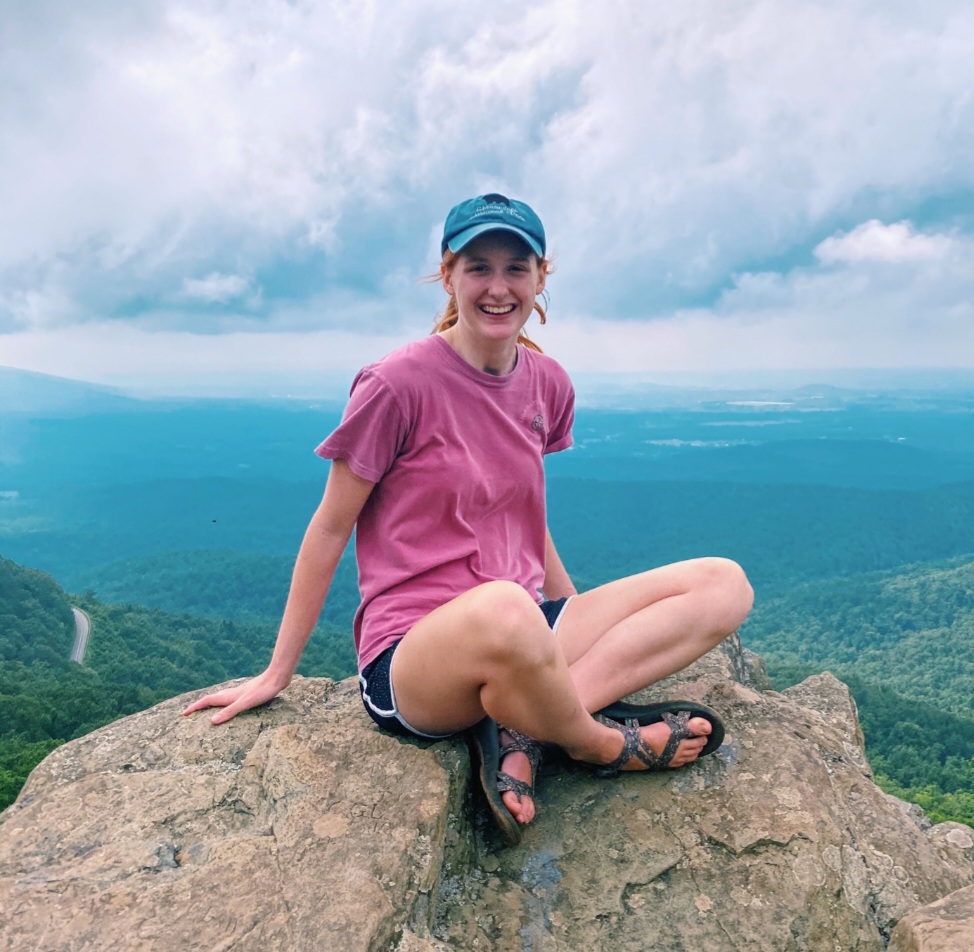
Sydney Haney
Virginia Tech, Class of 2024
Sydney is an undergraduate majoring in Wildlife Conservation with a minor in Leadership and Social Change. She became interested in entomology through a nature photography program in the Great Smoky Mtns. and has since gained experience in forest entomology, insect biocontrol, wildland fire ecology, and now, aquatic entomology. She is currently assisting with the Shenandoah Springs project and working on her own project photographing Virginia’s threatened and endemic species.
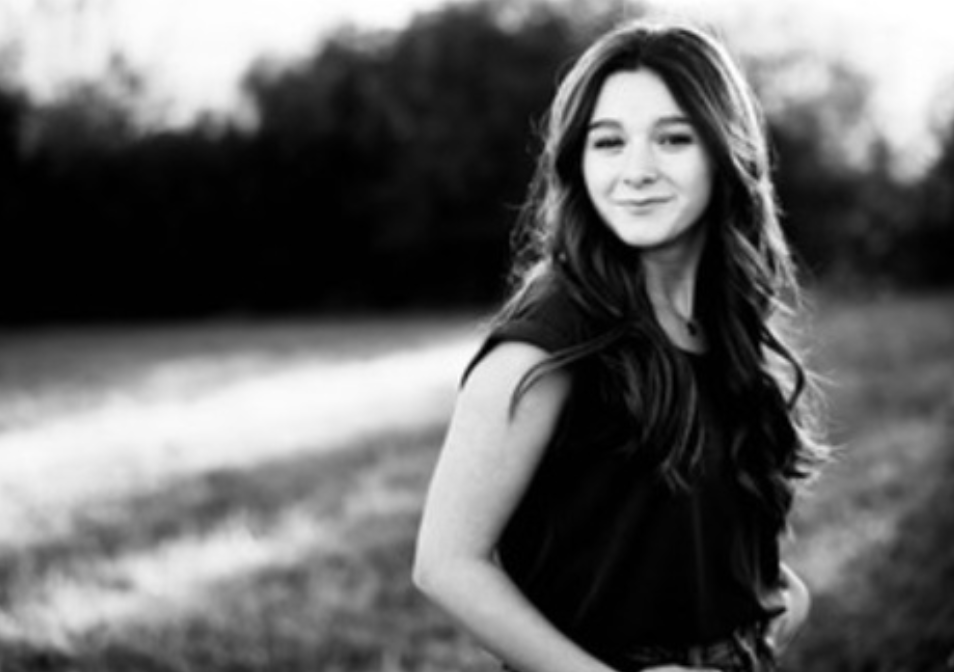
Emme Linkous
Virginia Tech, Class of 2026
Emme is an undergraduate student majoring in Environmental Resources Management with a minor in Forestry. She is a laboratory assistant and has aided in processing invertebrates for the Shenandoah Springs Diversity project since the winter of 2023. Emme joined the lab because of her passion for the environment and studying the intricacies of life on earth. Emme’s primary interest is the study of trees, dendrology, and she is able to find joy in the intersection of forest and aquatic entomology.
Lab Staff
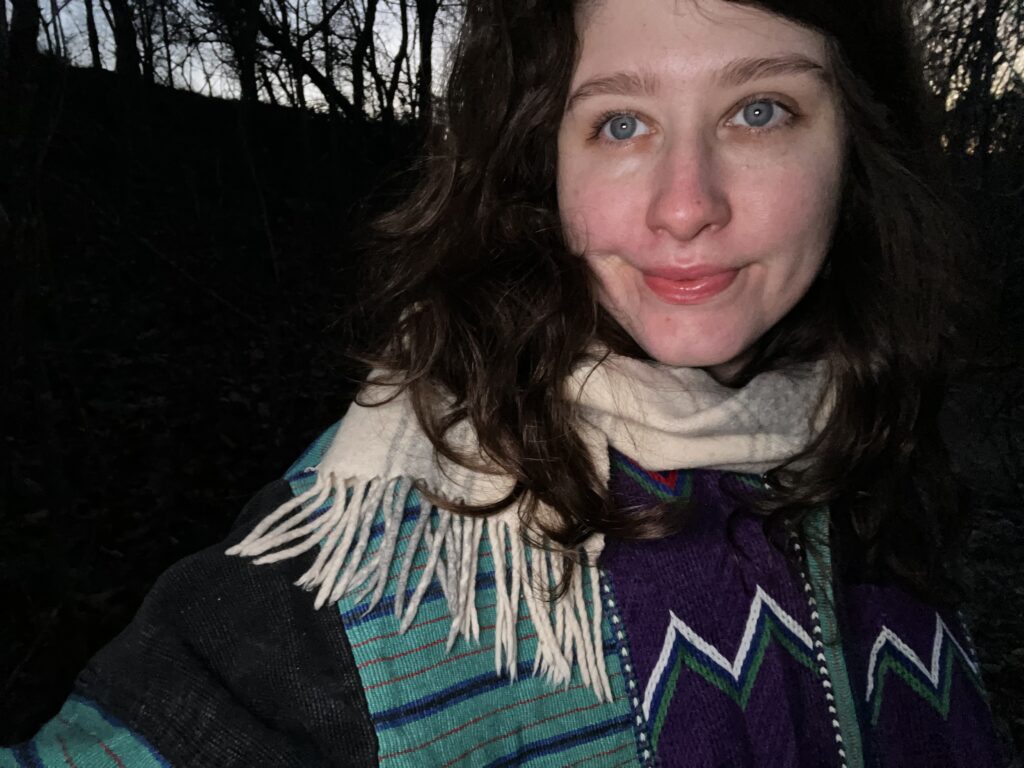
Lisa Tabor
LAB SPECIaLIST
Lisa earned her BS in Biology from VT in December 2022. Her time is dedicated to a National Science Foundation project that explores the impact of freshwater salinization on headwater streams within Appalachian coalfields of WV and VA. Additionally, she assists in the Shenandoah Springs project that investigates macroinvertebrate communities inhabiting both open and closed springs in Shenandoah National Park. Lisa’s professional interests include engagement with collaborative communities, aquatic ecology, and science communication, outreach, and education.

Holly Stilwell
LAB TECH
Holly graduated from Virginia Tech in May of 2023 with a BS in Psychology and a minor in Entomology. Although she discovered her interest in Entomology later in her academic career, she has made it her mission to learn all that she can about insects now. Holly has experience working in both Apiculture and Aquatic Entomology. She currently assists Elizabeth Sicking in her project on geographically isolated wetlands in southwestern GA, and is always happy to help out elsewhere in the lab. Her research interests include macro invertebrate taxonomy, insect biodiversity in Appalachia, and environmental conservation.
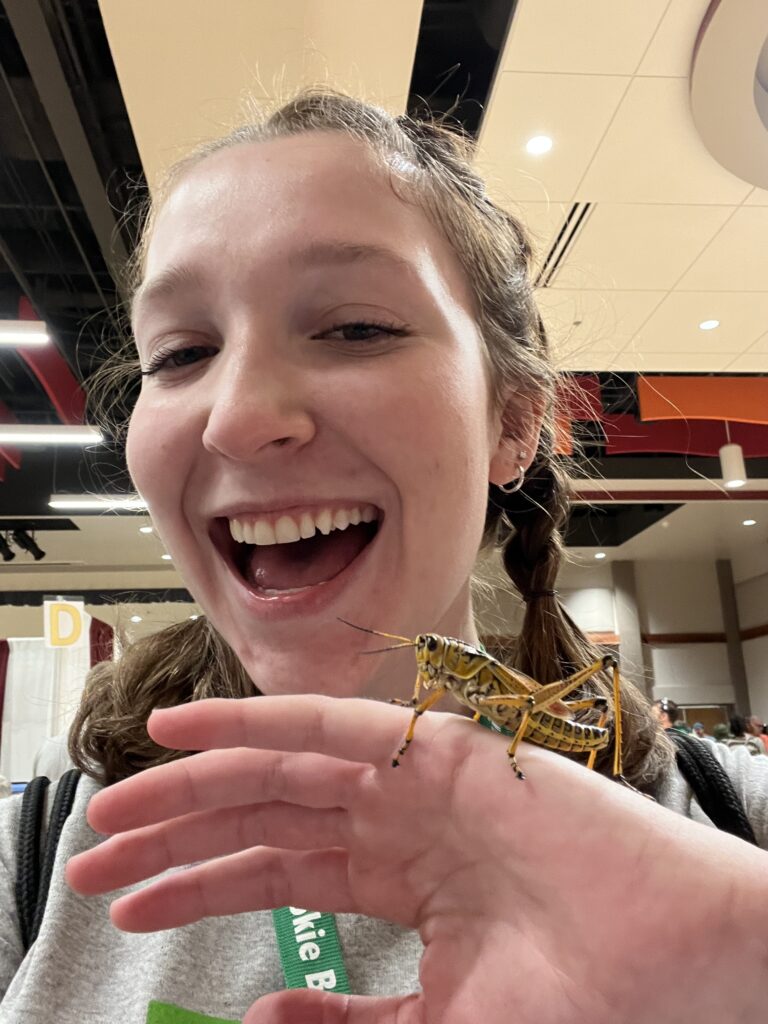
Madeline Alford
LAB TeCh
Madeline is a recent graduate of North Carolina State University with a major in Creative Writing and minors in both Art and Design and Entomology. Madeline fell in love with freshwater entomology during her senior year of her undergrad and is exploring her interests and talents alongside the students and staff of Dr. Sally Entrekin’s freshwater entomology lab. She has spent her time in the lab ID-ing insects and other macroinvertebrates for Sergio’s USGS BMP project. She has been working with him since the fall of 2023 and will continue to assist him through the spring semester in 2024. Madeline has also undertaken the upkeep of the lab’s website and hopes to undertake greater things in the future such as assisting with publications. She is extremely passionate about combining her love of art, writing, and entomology and hopes to achieve great things within her niche in the near future.
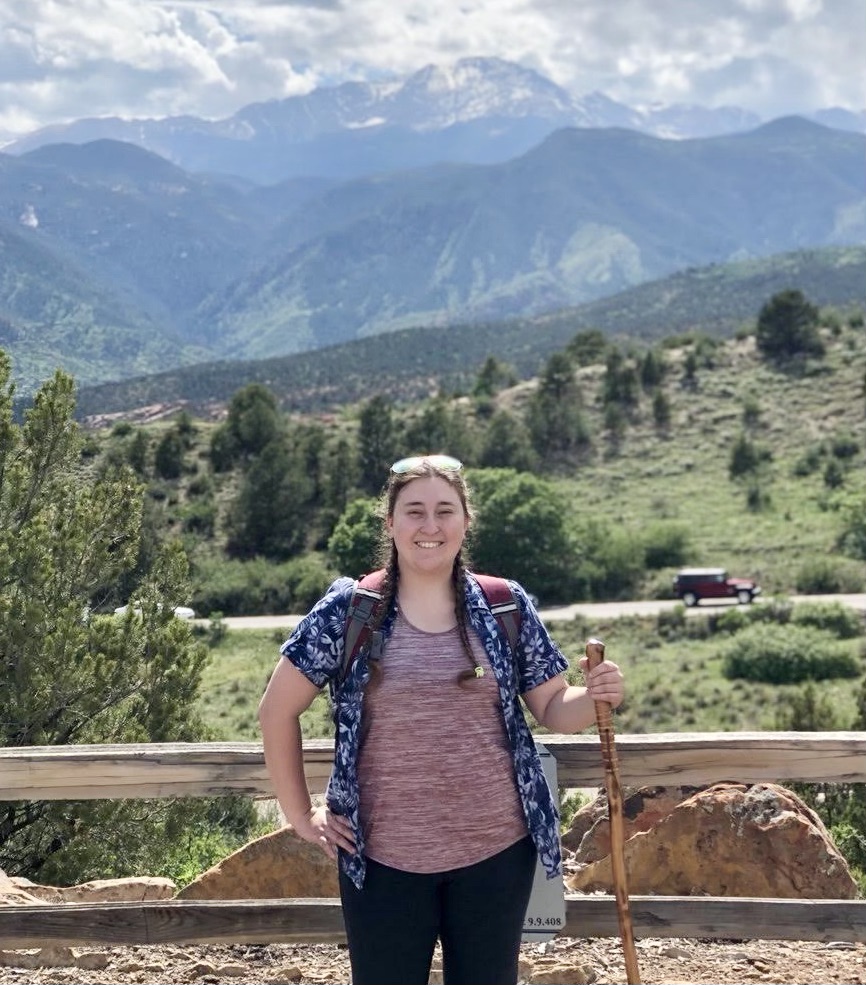
Megan Underwood
LAB TECH
Megan graduated from Virginia Tech in may of 2015 with a B.S. in Biological Sciences and a double minor in Entomology and Medicine in Society. She has been fascinated with insects throughout her life and her interest was particularly piqued while attending governor’s school where she conducted a project based in forensic entomology. While attending the aquatic entomology class at VT during her senior year, she was introduced to an open lab position in the Virginia Tech Water Resources Research Center and she has worked there ever since. She would like to work in ecological monitoring and restoration efforts in various aquatic environments in the future. In addition to her work at the water center, she recently joined the Entrekin lab to assist with a variety of projects including the Salty C Project and the USGS project. Her skills are primarily aquatic macroinvertebrate identification and sample collecting and processing, but in the future she would like to develop new skills by assisting with field work and processing new types of samples.
Brice Crum
LAB TECH
Brice graduate from the Virginia Tech College of Science in the spring of 2023 and has his B.S. is Biology. In the summer of 2021 he was awarded a fellowship to study the antimicrobial properties os poison ivy. In 2022 and the following academic year, Brice collaborated with students in the Brown lab to develop an undergraduate grant funded project assessing the effects of invasive species an the symbiotic relationship between native crayfish and their annelid symbionts within two watersheds. Brice’s time in the Brown lab helped him discover his interest in freshwater ecology and fueled his passion for research. After graduation, Brice spent his summer in Oregon with the Bureau of Land Management as a Biological Sciences Technician conducting watershed assessments in the Pacific NW. In the Enrtekin Lab, Brice assists with Sergio’s USGS BMP project by identifying macroinvertebrates and also conducts fieldwork on long-term monitoring projects in Shenandoah National Park. Brice’s professional prospects include graduate school and eventually working within freshwater ecology, ecological restoration, and studying metacommunities.
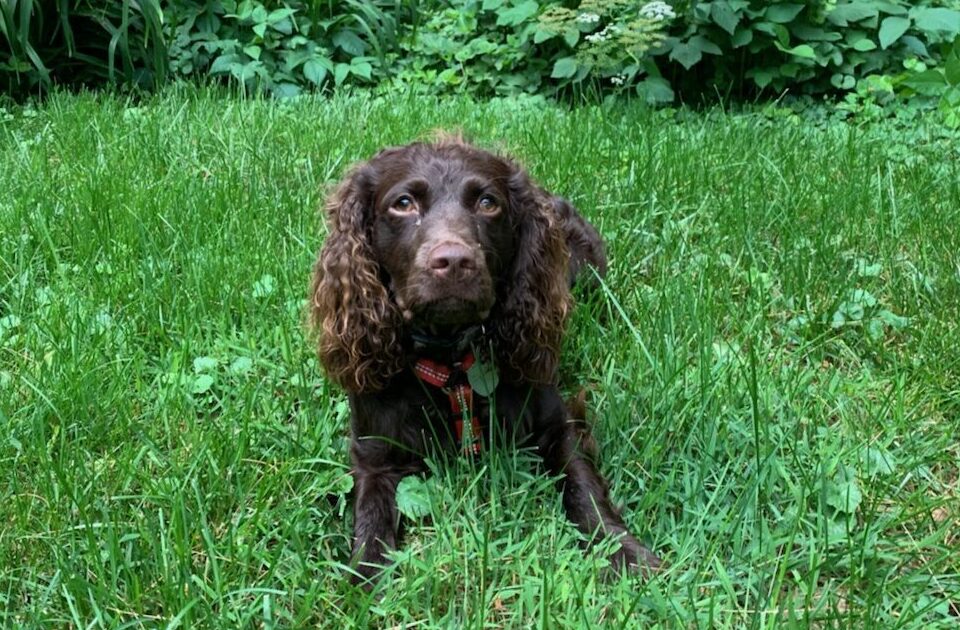
May Bee - Lab Mascot and Field Expert
She specializes in fetch, finding field site locations, and keeping everyone safe while out in the field.
Former Graduate Students
Kelly McIntyre. Spring 2017 to Spring 2021. Thesis title. “Impacts of atmospheric acid deposition and subsequent stream liming on macroinvertebrate secondary production in headwater streams of Shenandoah National Park” Kelly is currently working as the vegetable entomology lab master at Virginia Tech.
Danielle Braund. Fall 2017 to Fall 2019. Thesis title:” How the condition and capacity of headwater streams to transform and transport nutrients and the impact of excess phosphorus on macroinvertebrate community composition.” Co-advised by.. Danielle is currently..
Anastasia Mogilevski. Fall 2017 to Fall 2019.Thesis title “How stream salinization alters leaf decomposition in streams via multiple detritivore pathways.” Co-advised by .. Anastasia is currently
David Mitchell. Fall 2008 to Fall 2009. Thesis title: “Structure and function of large wood in Ozark headwater streams and its effect on fish community structure.” Co-advised with Ginny Adams. David is currently an instructor at Ozarka College, Mountain View, AR.
Allyn dodd. Spring 2010 to Spring 2012. “Driving mechanisms of leaf decomposition based on wetland type and surrounding land use in White Oak Bayou watershed.” Allyn now working towards a Ph.D. in ecology at the University of Arkansas, Fayetteville.
Nicki Johnson. Spring 2010 to Spring 2012. “Effects of changing land use on macroinvertebrate communities in north-central Arkansas.” Nicki now works for an environmental consulting firm, GBMc, in Arkansas.
Julie Kelso. Spring 2010 to Fall 2012. “Macroinvertebrate community structure and their use of refuge in intermittent and perennial streams.” Julie is currently working on a Phd in ecology at Utah State, Utah.
Amanda Bates. Spring 2010 to Fall 2012. “Macroinvertebrate community structure and leaf decomposition in intermittent Ozark streams.” Amanda now works for the Arkansas Department of Environmental Quality as an ecologist.
Chris Fuller. Fall 2011 to Fall 2013. He has worked on the NSF-funded Resource Ratio grant as an undergraduate at UCA. He began the project as a research assistant in fall of 2012. His research interests are changes in aquatic Diptera growth rates under varying levels of nitrogen and phosphorus resource concentrations. Chris is currently working as the laboratory manager for Lake Bella Vista, AR.
Adam Musto. Fall 2011 to Fall 2013. He began working in the laboratory as a junior at UCA. His interests are examining biological alterations of north-central Arkansas headwater streams along a gradient of natural gas development in the Fayetteville Shale. Adam is a full-time high school science teacher in Searcy, Arkansas.
Steve Polaskey. Fall 2012 to Spring 2015. Steve quantified the interaction between insect shredders and detrital microbial communities across a gradient of nutrient enrichment. He is currently a chemical and environmental analyst for the city of Boulder, CO.
Lucy Baker. Fall 2014 to Spring 2017. Lucy examined how watershed sensitivity interacts with human activities to influences biological responses to multiple anthropogenic stressors. She sampled macroinvertebrates in 40 headwater streams throughout north-central Arkansas.Lucy is now at the Virginia Department of Environmental Quality as TMDL coordinator.
Stephanie Stoughton. Spring 2015 to Fall 2017. Stephanie quantified nutrient transfer from urban tributaries and transformation (denitrification) in a rapidly urbanizing wetland-dominated watershed (White Oak Bayou, Arkansas). She currently works as the watershed manager at Elk County Conservation District, Pennsylvania.

